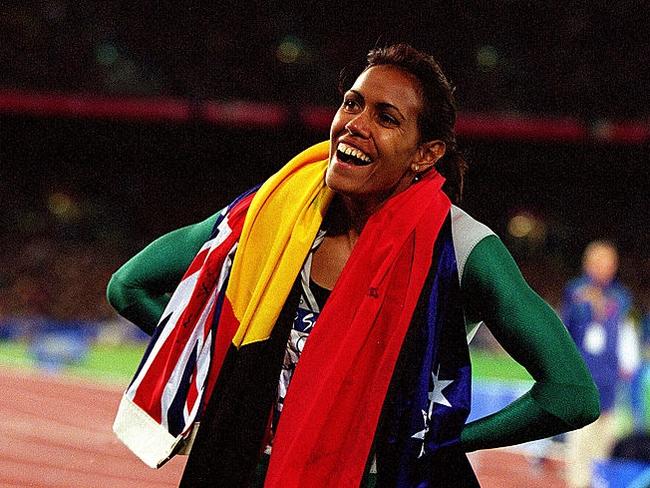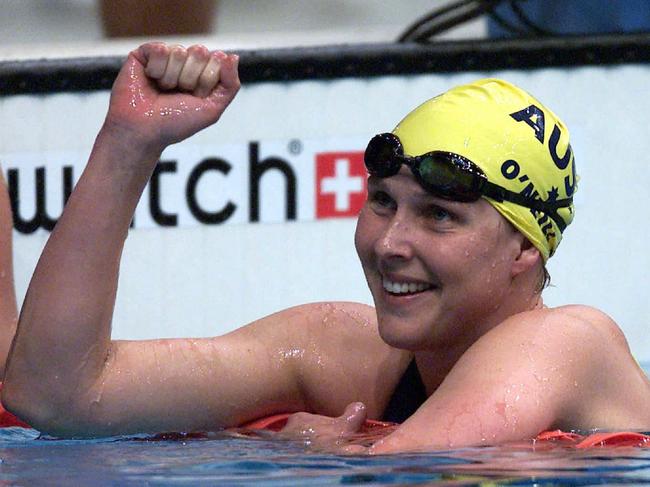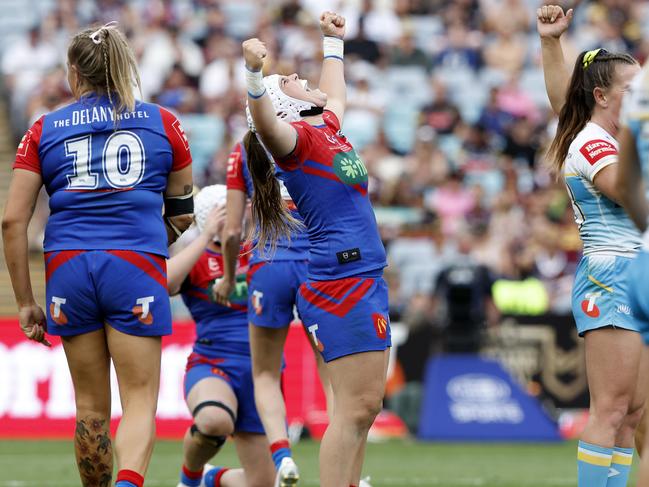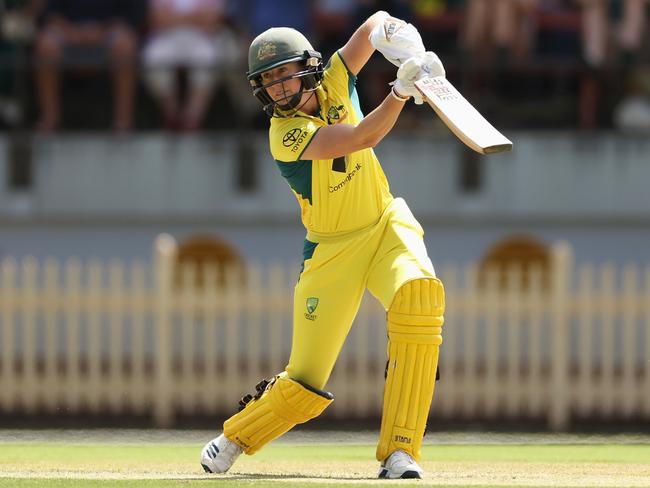International Women’s Day: Cate Campbell’s exclusive column on the challenges facing women’s sport
Women’s sport faces all manner of barriers when it comes to getting the respect it deserves. But one obstacle, according to Australian Olympic champion Cate Campbell, stands above all others.
Sport
Don't miss out on the headlines from Sport. Followed categories will be added to My News.
There is an old, but steadfastly true adage: ‘you can’t be what you can’t see’.
I was eight when I was first given the opportunity to catch a glimpse of what the future might look like for me, if I was brave enough to chase it. It was the year 2000 and at that time I was still living in the small central African country, Malawi, as the Sydney Olympic Ceremony heralded the start of the Games.
As I watched the flames light the Olympic cauldron above the Stadium, as the music crescendoed and the crowd cheered, I felt a tiny flame ignite in my belly.
Small at first, delicate as a candle in the wind; a tiny pin-prick of warmth, of hope.
Up until that point, the only sportspeople I had seen on the TV were men playing rugby.
As a young girl, sport was something to observe not something to participate in. A woman’s role was to support, not to play.

Yet, at the Olympics, men and women competed on the same stage, for the same prize. Each performance greeted with a gold medal which was weighted equally on the same medal table.
For the first time in my life, I saw male and female athletes applauded as true equals.
Over the next two weeks I devoured the Olympics. I watched Susie O’Neill dance for joy after her 200m freestyle victory, Ian Thorpe raise his fist in victory after the 400m freestyle and the 4x100m freestyle Aussie boy’s iconic air-guitar celebrations after beating the USA.
From across the Indian Ocean, I held my breath with my future countrymen as Cathy Freeman lifted her eyes to the heavens before the start of the 400m, and then let out a shared cry of victory as she glided over the line.
Sadly, in the 24 years since I first watched the Sydney Olympic Games, the Olympics is still one of the few platforms where male and female athletes are seen as true equals.

We have made massive strides in the past few years with the introduction and support of female professional leagues, but in general, sport is still seen as the male domain where women are tolerated but not celebrated.
There are a myriad of ways in which female athletes are relegated to second class competitors.
Of course, there is pay inequality, unequal access to facilities and a lack of gender specific training and health options. All of these are big, complicated, expensive problems which will take years to correct.
But there is one easy, simple inequity which could be rectified immediately. Something which on the surface seems small and insignificant, but when you dig a bit deeper reveals the bias still faced my many female athletes.
Its language.
Language is a powerful tool for change. It influences how we speak to and about each other, therefore changing the way we think and, crucially, how we act. Many sports, to tick the ‘equality and diversity box’, have introduced a women’s league.

I am not for a second suggesting that this is a bad thing, and I applaud the sports who have been proactive in this area, but we can do better.
When you take a sport and stick a ‘W’ in front or behind it, as in the case of AFLW or NRLW you are immediately signalling that the women’s league is relegated to the state of ‘other’.
There is an automatic assumption that if you are talking about the NRL or AFL that you must be referring to the men’s league because if you weren’t you would have specified it with a ‘W’.
In this way, sport is still predominantly seen as the male domain, with women’s’ leagues relegated to a second-tier, novelty product.
Some sports, like cricket, have done this at a national and international level.

Our national teams are officially referred to as the Men’s Cricket Team and the Women’s Cricket team and they compete respectively in the Men’s ICC and Women’s ICC T20 World Cups.
I don’t think it is a coincidence that our female cricketers are amongst the highest paid athletes in the country and women’s cricket has grown in leaps and bounds in the past few years.
The two most watched events – not sporting events, but events – in Australian television history were female sporting moments.
Cathy Freeman’s iconic 400m run at the 2000 Olympics and the Matildas nailbiting penalty shootout at the 2023 FIFA Women’s World Cup.
This, perhaps, says a lot about the welcoming, ubiquitous environment created by women’s sport. Something, with all the machismo, testosterone and scandals, is still lacking in men’s sport.
At its core, sport should be a space were everyone is welcome – irrespective of age, gender, ethnicity.
Watching the Sydney Olympics all those years ago taught me that sport could be for everyone.
Watching men and women competing on equal terms at an international level opened a door to a future I couldn’t have imagined otherwise.
It’s time we started talking about our male and female athletes equally at a domestic level as well.
More Coverage
Originally published as International Women’s Day: Cate Campbell’s exclusive column on the challenges facing women’s sport




